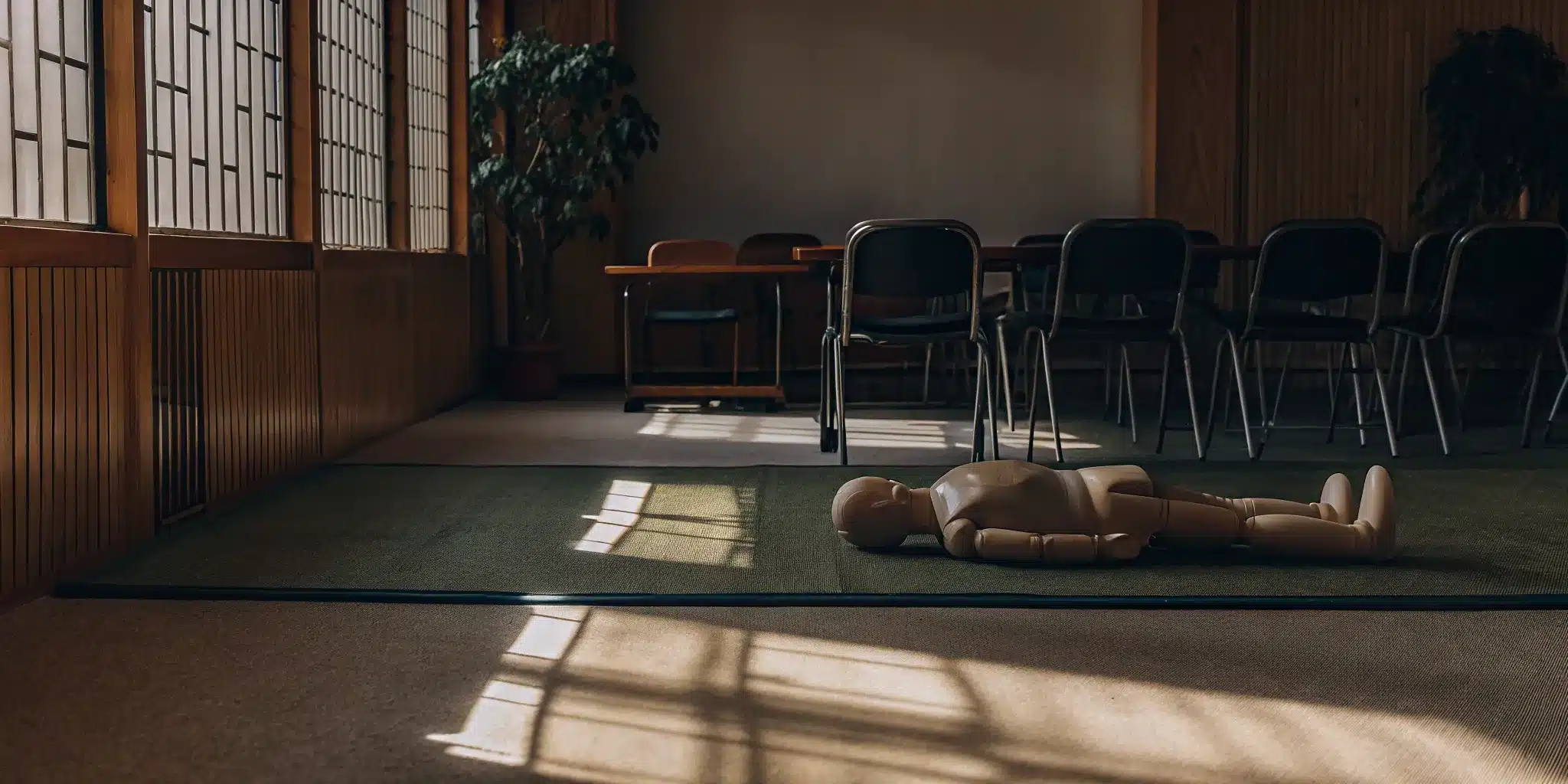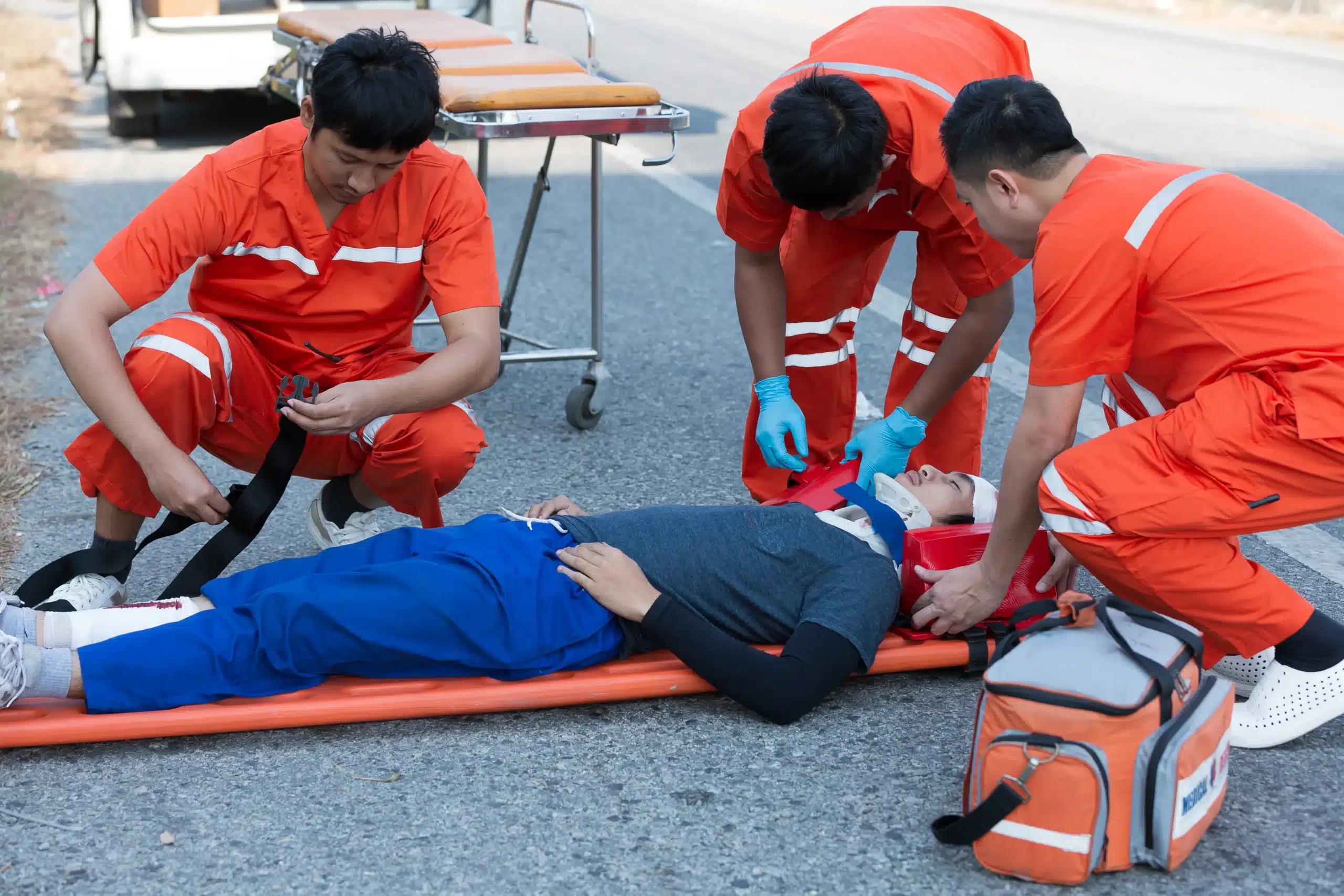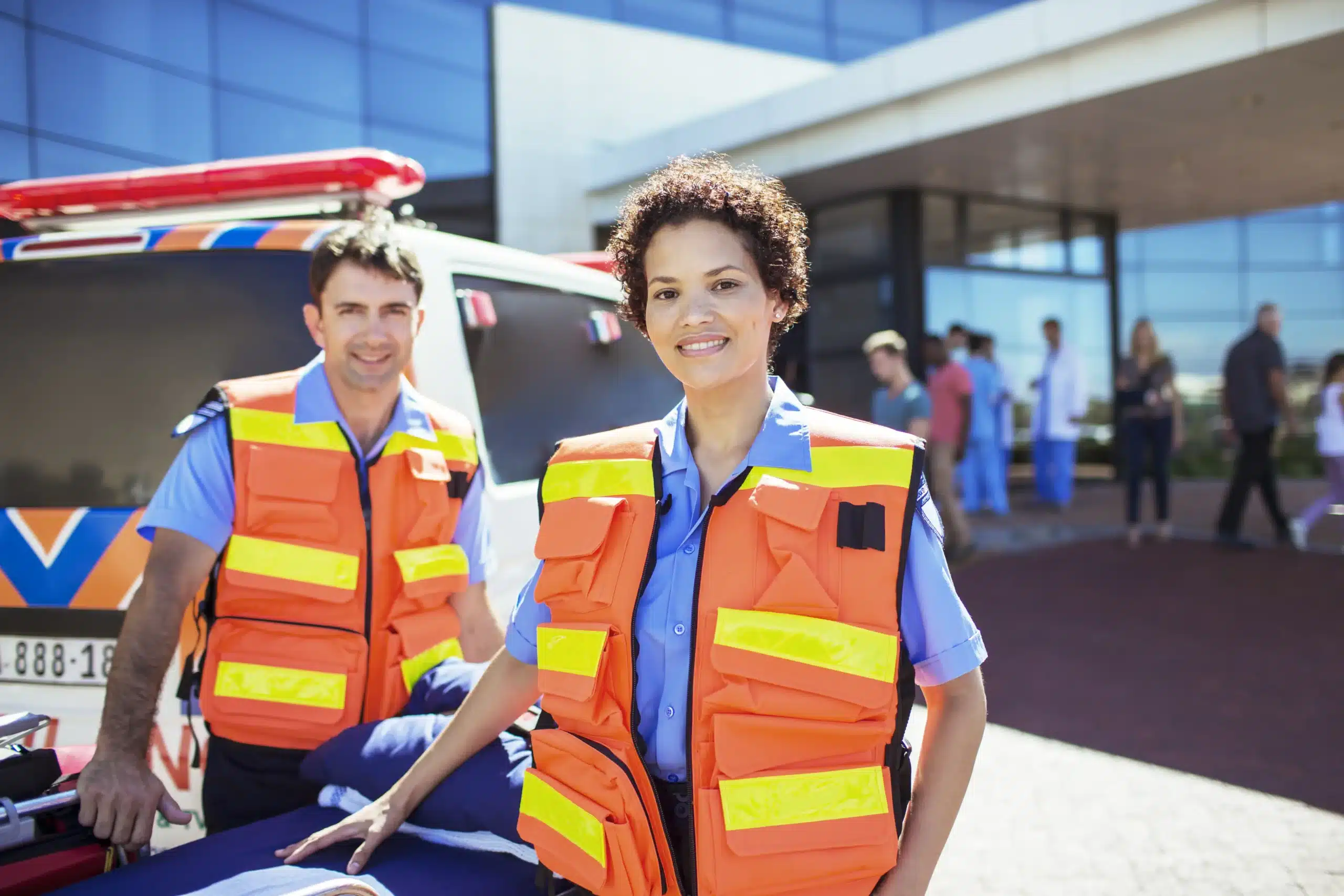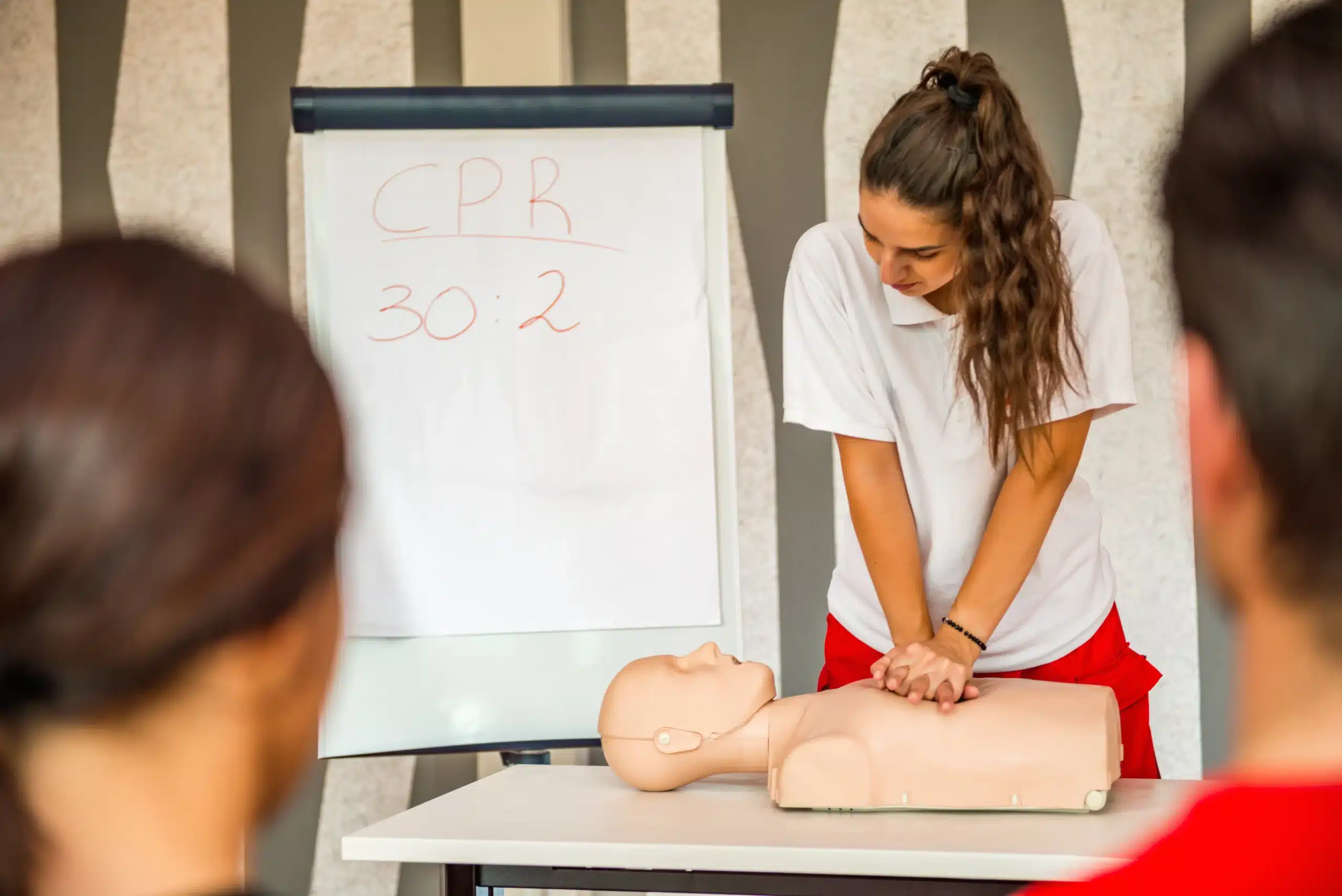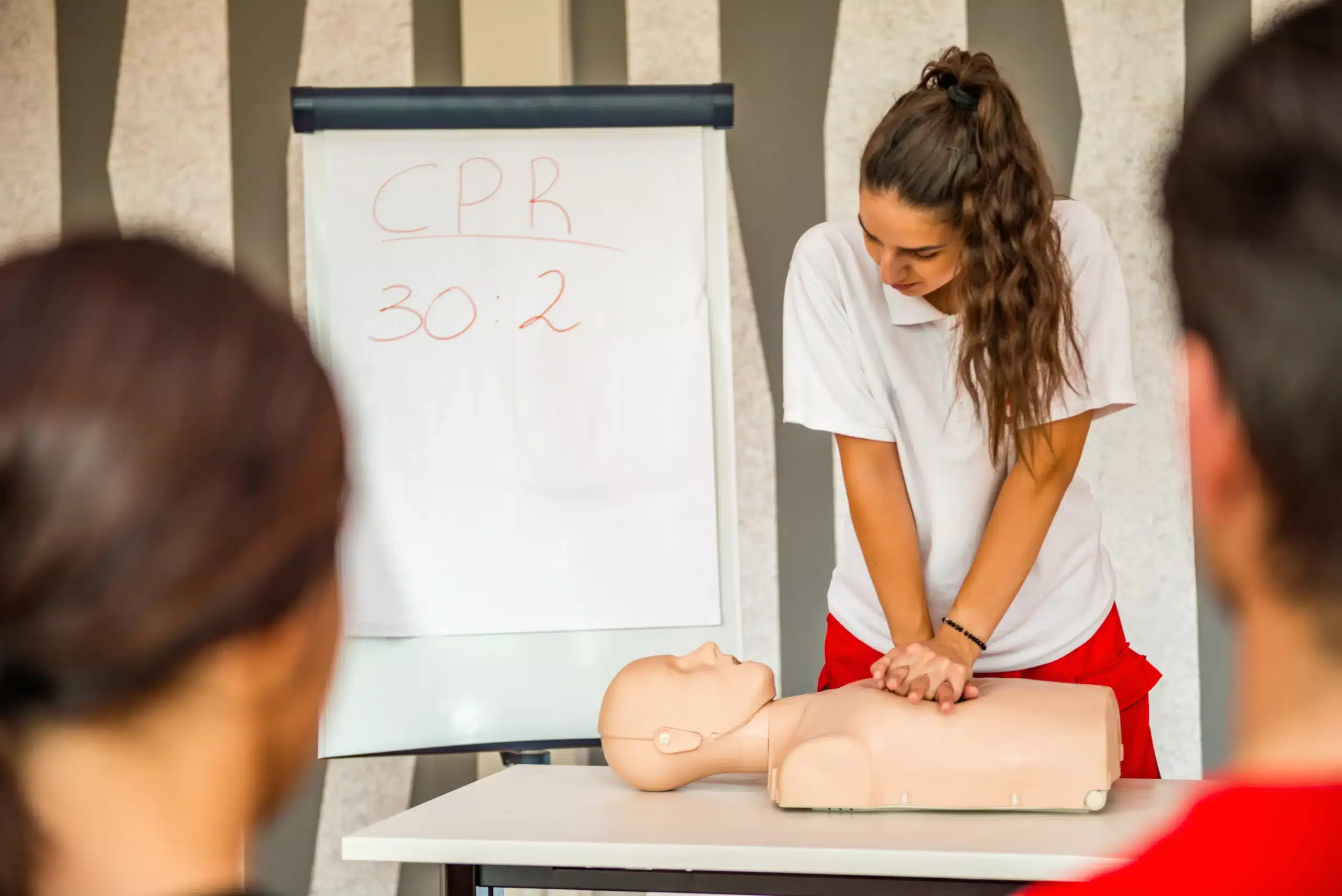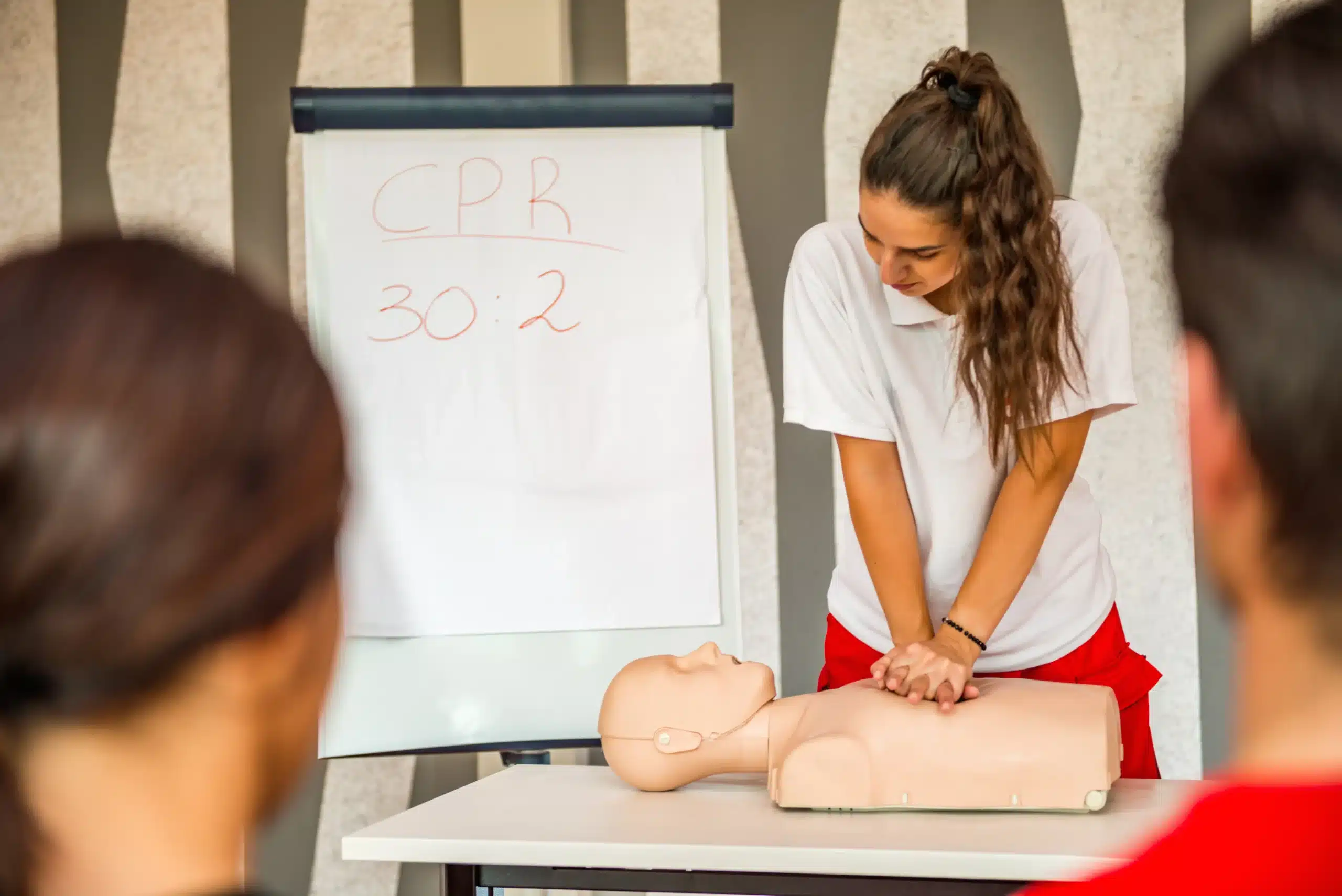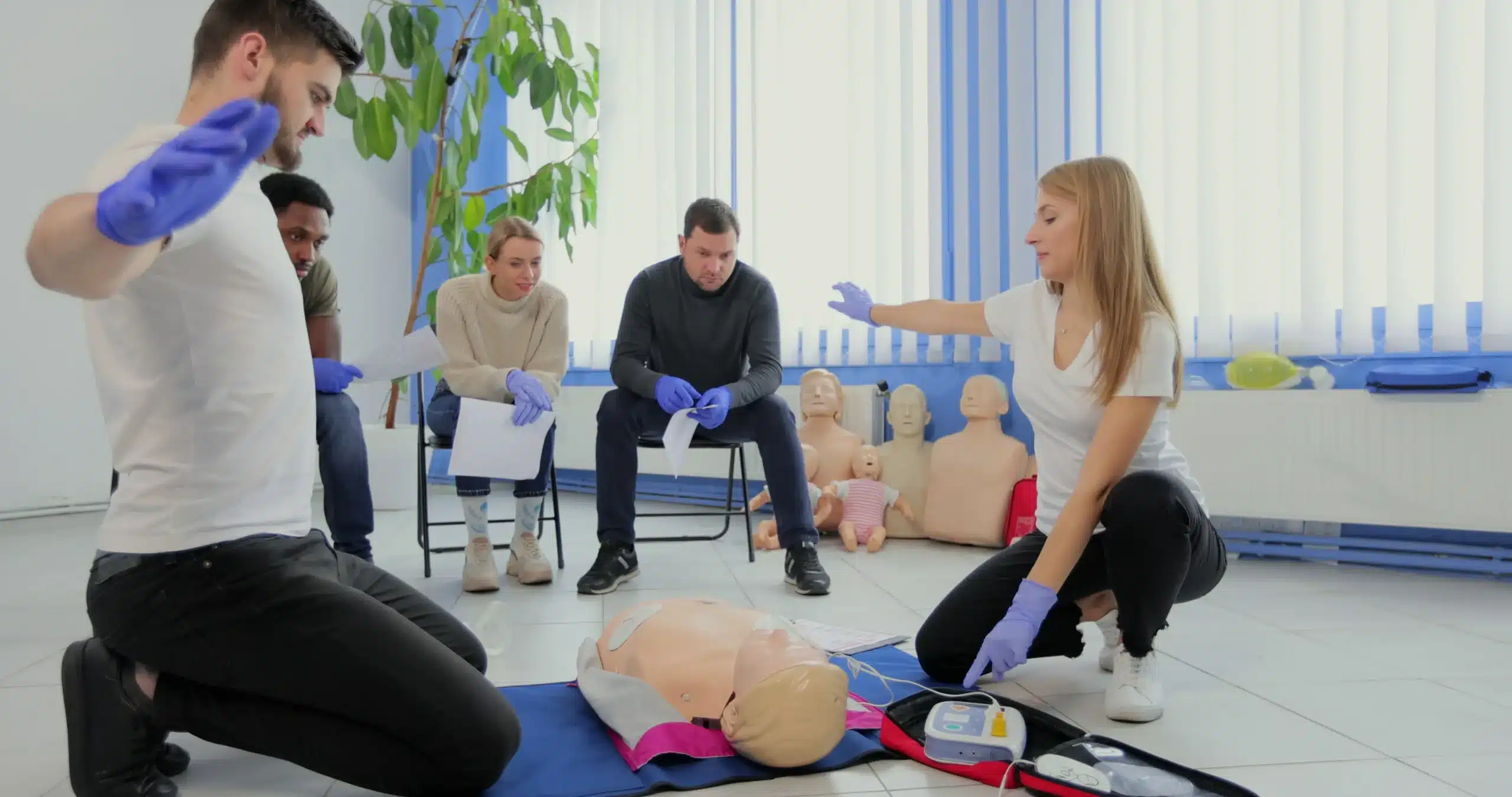Knowing CPR can transform you from a bystander to a life-saver. If you’re in Walnut Creek and ready to gain this essential skill, this guide will help you find the perfect cpr classes in Walnut Creek. We’ll cover everything from basic CPR and First Aid to advanced certifications like BLS, ACLS, and PALS. We’ll also discuss the benefits of CPR training, what happens during a class, and how to choose the right course and instructor. Plus, we’ll provide information on costs, schedules, and convenient locations in Walnut Creek, making it easier than ever to get certified.
Key Takeaways
- Find the Right CPR Class for You: Walnut Creek offers a variety of CPR classes, from basic to advanced, so you can choose one that meets your specific needs and schedule.
- Quality Instruction Matters: Select a class taught by experienced, AHA-certified instructors who can provide personalized feedback and create a supportive learning environment.
- CPR Training Is an Investment: Learning CPR equips you with essential life-saving skills, builds confidence, and can even fulfill professional requirements, making it a valuable investment in yourself and your community.
What are CPR Classes in Walnut Creek?
CPR classes in Walnut Creek give you the skills to handle emergencies and potentially save lives. These classes cover essential life-saving techniques, including CPR (Cardiopulmonary Resuscitation), how to use an AED (Automated External Defibrillator), and basic First Aid. Whether you’re a healthcare professional keeping your certifications current or just want to learn these vital skills, different courses are available for various needs and experience levels. Many Walnut Creek classes offer American Heart Association (AHA) certification, ensuring you receive high-quality, nationally recognized training. Instructors often have experience as emergency personnel, like EMTs and firefighters, and bring real-world knowledge to the classroom. Concord CPR Classes offers a range of options, including BLS, ACLS, and PALS certification. For those looking for other providers, CPR training is also available through organizations like the American Red Cross and local hospitals. Convenient schedules, including weekend and evening options, make it easier to fit these important courses into your life.
CPR Class Types
Knowing which CPR class is right for you can feel overwhelming. This section breaks down the different types of CPR classes offered in Walnut Creek to help you make the best choice.
Basic Life Support (BLS)
Basic Life Support (BLS) certification is a cornerstone for healthcare providers, focusing on the immediate response to life-threatening emergencies. Think high-quality CPR, AED use, and effective ventilation techniques. A BLS certification course covers essential skills for managing cardiac arrest, respiratory distress, and choking in adults, children, and infants. It emphasizes early recognition and intervention, the critical first steps in improving patient outcomes.
Advanced Cardiovascular Life Support (ACLS)
Advanced Cardiovascular Life Support (ACLS) builds upon the foundation of BLS. This advanced course prepares healthcare professionals to manage complex cardiovascular emergencies, including strokes and heart attacks. ACLS training covers advanced airway management, pharmacology, and effective team dynamics during critical situations. It’s designed for those who lead or participate in resuscitation teams, requiring a deeper understanding of cardiovascular physiology and treatment algorithms.
Pediatric Advanced Life Support (PALS)
Pediatric Advanced Life Support (PALS) focuses on the specialized needs of infants and children facing life-threatening illnesses or injuries. This course equips healthcare providers with the knowledge and skills to assess, manage, and stabilize pediatric emergencies. PALS training emphasizes effective communication and teamwork, recognizing the unique physiological differences between children and adults.
First Aid & CPR
First Aid and CPR training provides essential skills for anyone, not just healthcare professionals. These courses teach you how to respond to common emergencies like burns, cuts, and allergic reactions, as well as how to perform CPR and use an AED. Whether you’re a parent, teacher, or simply want to be prepared for the unexpected, a combined First Aid and CPR class empowers you to provide immediate care in a crisis. Many workplaces also encourage this type of training for their employees.
Choose the Right CPR Class
Finding the right CPR class depends on your specific needs and goals. Whether you’re a healthcare provider, work with children, or want to be prepared for emergencies at home or in the workplace, there’s a CPR class in Walnut Creek for you. Let’s explore the different options:
For Healthcare Professionals
Healthcare professionals, such as doctors, nurses, and EMTs, need up-to-date certifications to maintain their licenses and provide excellent care. American Heart Association (AHA) BLS, ACLS, and PALS certifications are crucial for responding to emergencies in clinical settings. These courses cover essential life-saving techniques specific to healthcare. Concord CPR Classes offers these specialized courses, ensuring you receive the training you need to meet professional requirements and confidently handle critical situations. For streamlined recertification, consider the RQI program.
For Childcare Providers and Educators
Working with children brings unique responsibilities, including being prepared for pediatric emergencies. CPR and first aid training designed for childcare providers and educators focuses on techniques relevant to infants and children. These courses empower you to respond effectively to choking, breathing difficulties, and other emergencies. Look for classes offering hands-on practice and age-appropriate scenarios to build confidence and skills.
For the General Public & Workplace Safety
Learning CPR and first aid is valuable for anyone, regardless of profession. These skills can make a real difference in emergencies at home, in public, or in the workplace. Group discounts are often available, making it affordable for families, community groups, or businesses to train together. Basic CPR and first aid certification can equip you to respond to various situations, from minor injuries to life-threatening events. You can gain the confidence to act quickly and potentially save a life.
CPR Class Costs & Value
CPR certification is an investment in life-saving skills, and understanding associated costs is an important part of your decision. Let’s break down typical pricing structures you’ll find when exploring CPR classes in Walnut Creek.
Individual Class Prices
Finding a CPR class that fits your budget is easier than you think. Many local providers offer competitive individual class prices. While comparing pricing is always wise, you’ll find most providers strive to make these essential skills accessible. Concord CPR Classes, for example, offers a low price guarantee, ensuring you receive high-quality training at a fair price.
Group & Corporate Discounts
If you’re training a group of employees or colleagues, explore group and corporate discounts. These discounts can significantly reduce the per-person cost, making it more affordable to equip your team with life-saving skills. Concord CPR Classes offers discounted group rates and can tailor training to your specific workplace needs. This is a smart option for businesses, community groups, or even families learning together.
Payment Options & Low Price Guarantee
CPR training providers understand convenience matters. Most centers offer flexible payment options to simplify registration. Look for providers like Concord CPR Classes that offer various payment methods and a low price guarantee. This commitment to affordability reinforces their dedication to accessible life-saving training for everyone.
Instructor Qualifications & Certification
Choosing the right CPR class is a big decision, and knowing you’ll learn from qualified instructors is essential. Here’s what you should look for in a CPR training program:
AHA-Certified Instructors
The gold standard for CPR instruction is certification from the American Heart Association (AHA). AHA-certified instructors complete rigorous training and testing, ensuring they have up-to-date knowledge and skills. Many instructors also have real-world experience as firefighters, EMTs, or paramedics, giving them practical insights to share. Look for classes taught by these certified professionals for the highest quality training.
Instructor Experience
Beyond certification, consider the instructor’s teaching experience. A comfortable and supportive learning environment is crucial, especially when learning life-saving skills. Experienced instructors create a low-stress atmosphere where students can ask questions and practice confidently. Instructors with healthcare backgrounds often excel at this, making the training more effective.
Certification Validity & Renewal
After completing your CPR course, you’ll receive an official AHA certification card, typically valid for two years. Knowing the validity period is important, especially for healthcare professionals. Many training centers offer convenient renewal options, including online skill checks and refresher courses for certifications like BLS (Basic Life Support) and ACLS (Advanced Cardiovascular Life Support). Check with your chosen provider for details on certification renewals.
Class Locations & Schedules
Finding a CPR class that fits your schedule shouldn’t be a hurdle. We offer convenient options designed to make training accessible for everyone.
Convenient Walnut Creek Locations
Our classes are conveniently located near Treat Boulevard and the Contra Costa Centre, serving Walnut Creek, Concord, and Pleasant Hill. This central location makes it easy for students across the area to access high-quality CPR training. We understand your time is valuable, so we’ve chosen accessible locations to minimize travel time. For more specifics, visit our website for detailed location information.
Daily, Evening & Weekend Classes
We offer various class times to accommodate busy schedules. Whether you’re a working professional, student, or parent, we have a time that works for you. With daily, evening, and weekend options, you can choose what fits your lifestyle best. View our schedule and find a class that suits your availability.
Online & In-Person Options
We provide both online and in-person training. Our in-person classes offer hands-on learning and direct interaction with our certified instructors. For those who prefer flexibility, our online courses allow you to complete the cognitive portion of the training at your own pace. We also offer the American Heart Association’s RQI program, which combines online learning with in-person skills testing and same-day certification. This blended learning approach provides a convenient and efficient way to get certified.
What Happens in a CPR Class?
CPR classes blend theory and practical exercises to equip you with the skills to respond confidently in emergencies. Here’s a glimpse of what you can expect:
Hands-on Practice
CPR classes aren’t just lectures. You’ll spend a significant amount of time practicing on mannequins. This hands-on training allows you to get comfortable with chest compressions, rescue breaths, and other essential techniques under the watchful eye of a certified instructor. They’ll guide you, correct your form, and offer personalized feedback to help you master these life-saving skills. For more information on CPR and First Aid certification courses, visit Walnut Creek CPR classes.
Simulation & Feedback
Many CPR classes now incorporate simulation and feedback devices. These sophisticated tools provide real-time feedback on the depth and rate of your chest compressions, ensuring you’re delivering effective CPR. This immediate feedback is invaluable for improving technique and building muscle memory. Learn more about the impact of feedback devices on CPR skill acquisition and retention in this study00186-5/fulltext).
Assessments
Throughout the course, instructors will assess your progress. These assessments often involve simulated scenarios where you can apply your learned skills in a realistic environment. This helps you build confidence and prepares you to handle real-world emergencies. For further insights into CPR skill assessment in simulation, refer to this resource30010-4/fulltext).
Resources
Beyond the in-class training, you’ll likely receive additional resources to support your learning. This might include manuals, online materials, or access to local training programs to further enhance your knowledge and skills. These resources can be valuable refreshers and help you stay up-to-date on the latest CPR guidelines. Find CPR class and training program information for Walnut Creek and nearby areas through CPR Education.
Benefits of CPR Training
Learning CPR can feel empowering. It equips you with the skills to potentially save a life and makes you a valuable asset in your community. The advantages extend beyond the practical; CPR training also fosters personal growth and can even open professional doors.
Respond to Emergencies
CPR and first-aid training gives you the ability to respond effectively in a crisis. Instead of feeling helpless during a medical emergency, you’ll have the knowledge and skills to provide immediate assistance, potentially bridging the gap until professional help arrives. This quick action can significantly impact the outcome of cardiac arrest, stroke, or choking incidents. As these CPR and first-aid certification courses explain, these skills are crucial for making a real difference in your community.
Gain Confidence
Knowing how to perform CPR builds confidence, not just in emergencies, but in everyday life. This confidence comes from understanding the procedures and having practiced them in a supportive environment. It dispels common misconceptions and empowers you to act decisively when needed. Debunking CPR myths is a key part of becoming a more effective first responder.
Meet Requirements
For many healthcare professionals, CPR certification is a job requirement. The American Heart Association RQI program offers a streamlined path to obtaining BLS, ACLS, and PALS certifications, ensuring you meet these essential workplace standards. Even outside of healthcare, CPR training can enhance your resume and demonstrate your commitment to safety and preparedness.
Supportive Learning
CPR classes aren’t about memorizing facts; they’re about developing practical skills. Hands-on training with mannequins allows you to experience the physical aspects of CPR, like chest compressions, and receive feedback from certified instructors. This hands-on approach builds muscle memory and reinforces correct techniques, making you better prepared for a real-life emergency.
Register for a CPR Class
Ready to learn CPR? Registering for a class is easy, and we offer several convenient options to fit your schedule.
Register Online
Signing up online is the quickest way to secure your spot in a CPR class. Visit our website to view the schedule and choose a class time that works for you. We offer classes daily, making it easy to fit this important training into even busy schedules. Our customer service team is available seven days a week to answer any questions.
Walk-In Registration
While we encourage online registration to guarantee a spot, we understand that sometimes plans change. For our RQI program, you can register in person at our Walnut Creek testing location on the day of your chosen class. Just make sure you have your RQI login and the entry instructions we sent via text and email.
Group Bookings
Need to train a group? We offer discounted rates for group bookings, making CPR certification cost-effective for your team, organization, or community group. Contact us for more information about our group discounts and to schedule a private class. We’re committed to providing competitive pricing for all our American Heart Association courses.
CPR Class Providers in Walnut Creek
Finding the right CPR class can feel overwhelming, but several excellent providers serve the Walnut Creek community. Here’s a quick rundown to help you find the perfect fit:
Concord CPR Classes
Concord CPR Classes offers a range of courses, including BLS, ACLS, PALS, and First Aid. They prioritize making life-saving skills accessible with a low price guarantee and discounts for group classes. Their convenient location serves Walnut Creek, Concord, and Pleasant Hill. For healthcare professionals seeking streamlined recertification, they also offer the American Heart Association’s RQI program. Check out their blog post debunking common CPR myths—it’s a great resource. You can find their BLS, ACLS, and PALS courses through the links provided.
American Red Cross
If you’re looking for American Red Cross CPR certification, ALLCPR is a solid option. They offer Red Cross training alongside American Heart Association courses, giving you flexibility. They also provide competitive group training pricing, helpful for businesses or community groups.
Local Hospitals & Community Centers
Local hospitals and community centers often host CPR classes. CPR Education, for example, offers various CPR training options in Walnut Creek and surrounding areas, often conveniently located near familiar landmarks.
CPR Training Center
The Walnut Creek CPR Training Center focuses on American Heart Association-certified courses, including CPR and advanced life support. They cater to healthcare providers and offer flexible scheduling.
CPR Education
CPR Education is another provider committed to high-quality training. Their CPR, AED, and First Aid classes are taught by experienced, AHA-certified instructors. Their focus on accessibility and convenience makes them a popular choice in Walnut Creek.
Related Articles
- Northern CA CPR Directory – Concord CPR Classes
- BLS CPR Classes in Concord, CA – Concord CPR Classes
- AHA ACLS Classes in Concord, CA – Concord CPR Classes
- AHA PALS Classes in Concord, CA – Concord CPR Classes
- CPR & First-aid Classes in Concord, CA – Concord CPR Classes
Frequently Asked Questions
What’s the difference between BLS, ACLS, and PALS?
BLS (Basic Life Support) teaches core life-saving skills like CPR, AED use, and basic airway management. ACLS (Advanced Cardiovascular Life Support) is for healthcare professionals and covers more complex situations like strokes and heart attacks. PALS (Pediatric Advanced Life Support) focuses specifically on the emergency care of infants and children.
How much do CPR classes typically cost?
The cost varies depending on the type of class and the training provider. Individual classes are generally affordable, and many providers offer discounts for groups or corporate training. Look for providers like Concord CPR Classes that offer a low price guarantee.
How long is a CPR certification valid, and how do I renew it?
Most CPR certifications are valid for two years. Renewal typically involves taking a refresher course or completing an online skills check, depending on the specific certification. Check with your training provider for their renewal process.
What can I expect during a CPR class?
Expect a mix of interactive learning and hands-on practice. You’ll learn the theory behind CPR and other life-saving techniques, then practice those skills on mannequins. Many classes also use simulation and feedback devices to help you perfect your technique.
How do I find a CPR class near me in Walnut Creek?
Several providers offer CPR classes in and around Walnut Creek. Check online for local training centers, hospitals, and community organizations that offer CPR certification. Concord CPR Classes is a great option, conveniently located to serve Walnut Creek, Concord, and Pleasant Hill. They offer a range of courses and flexible scheduling.


